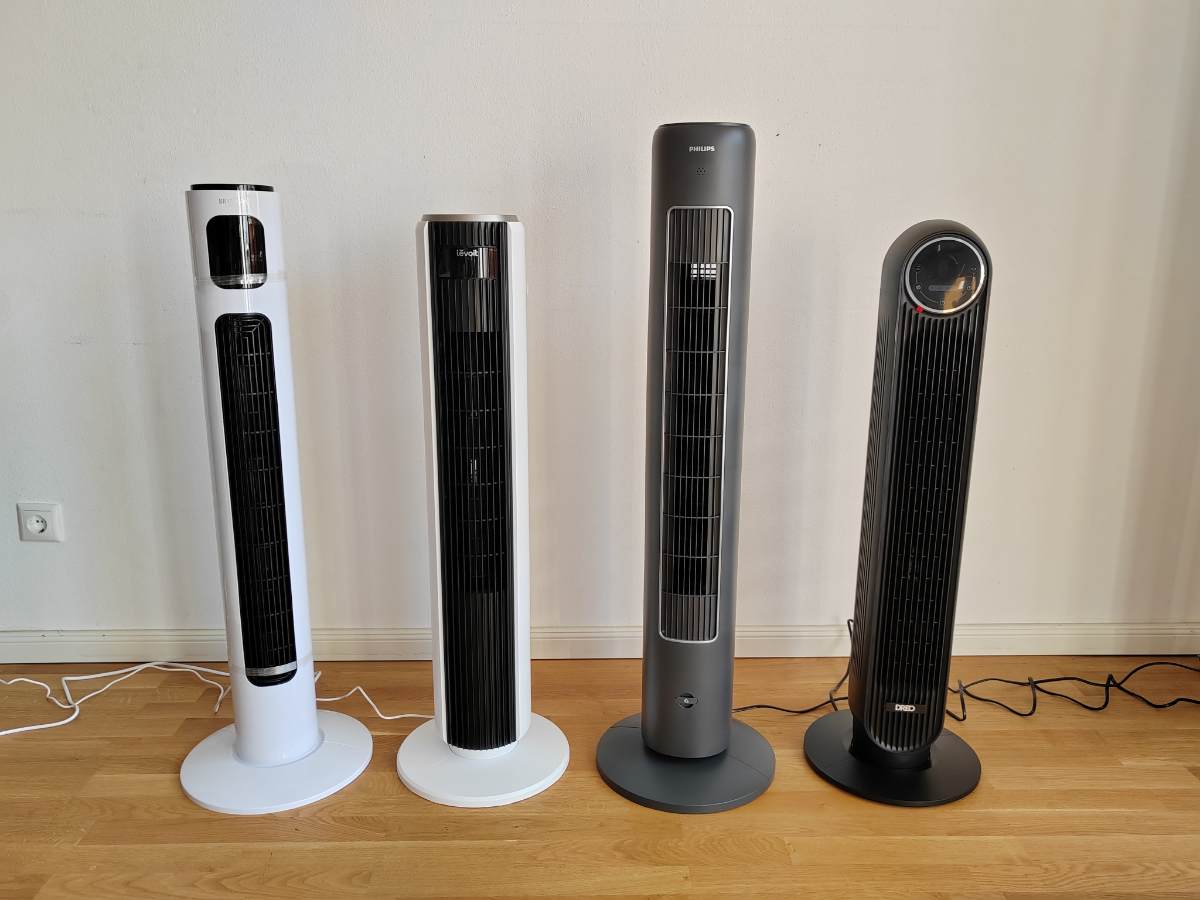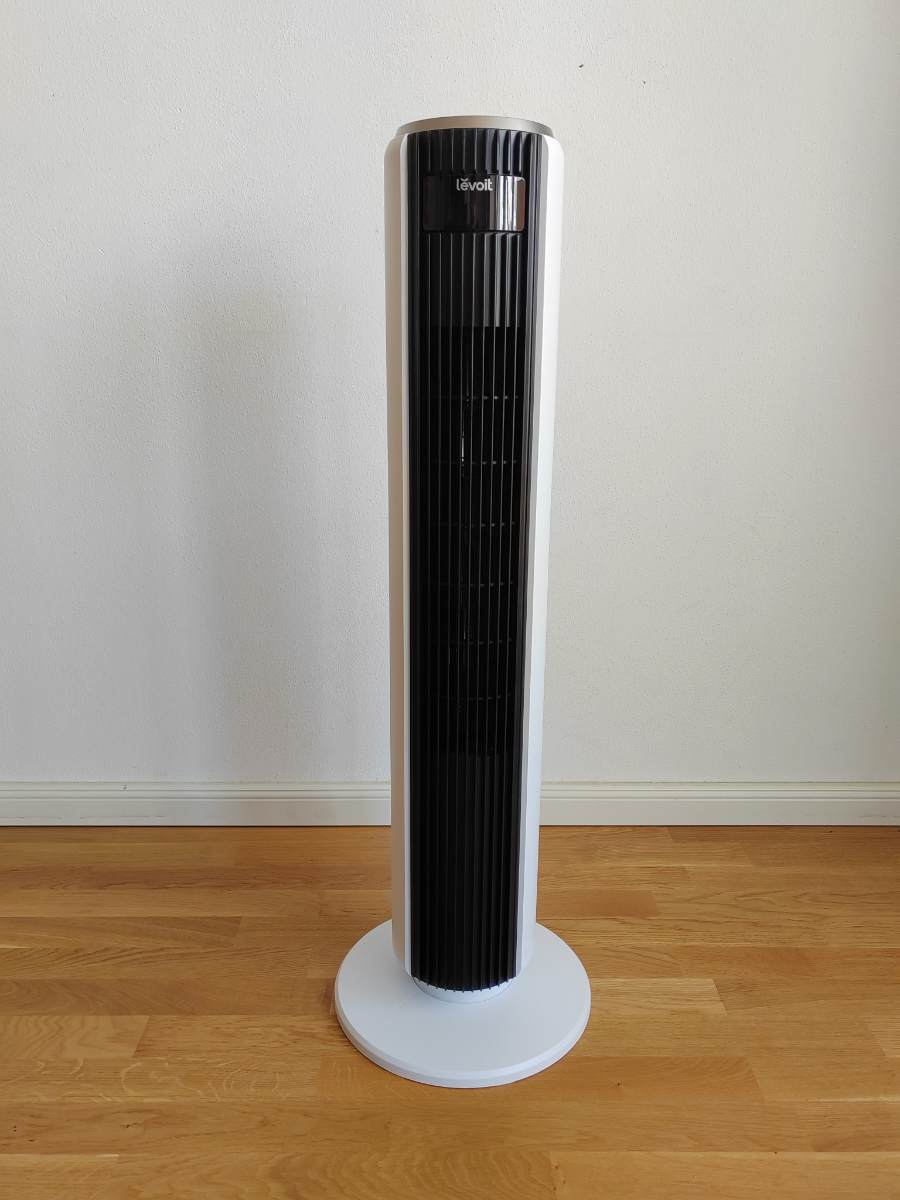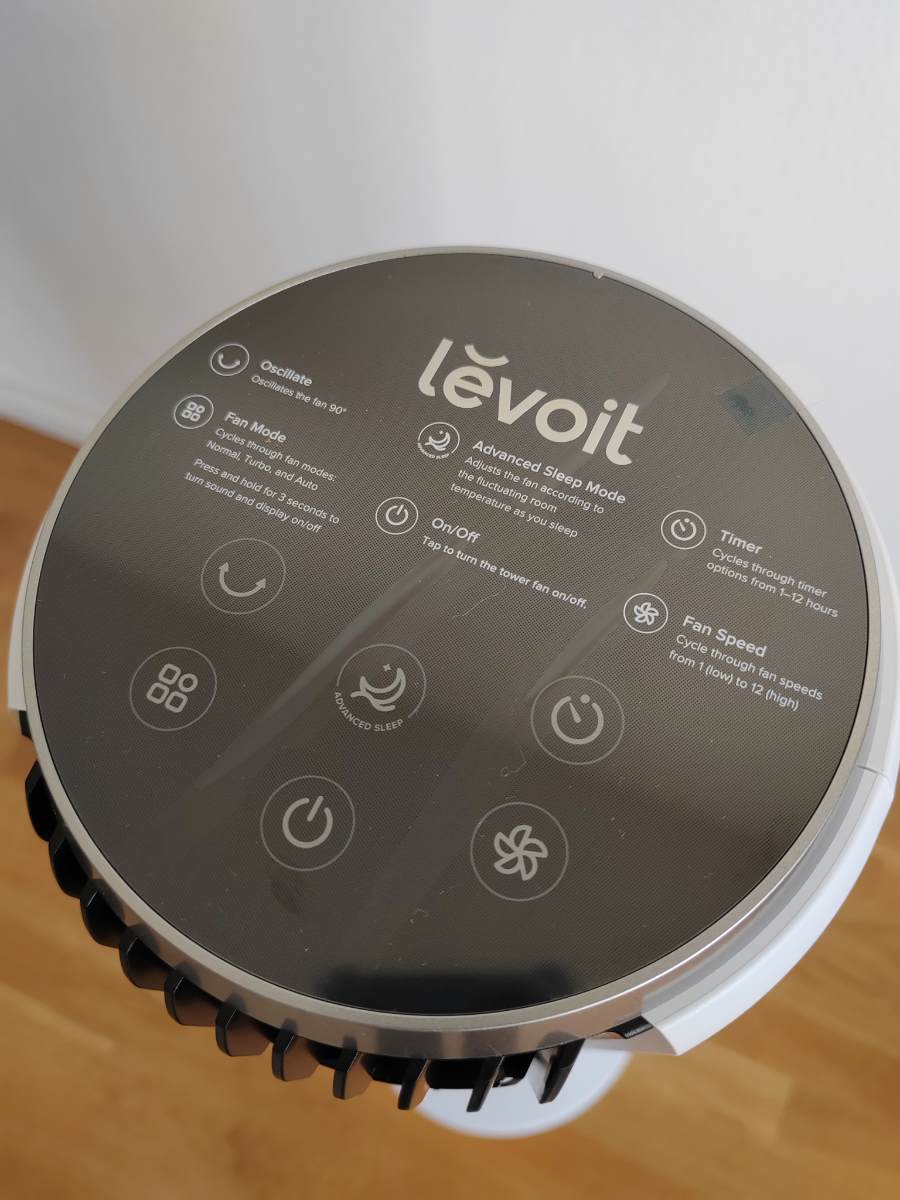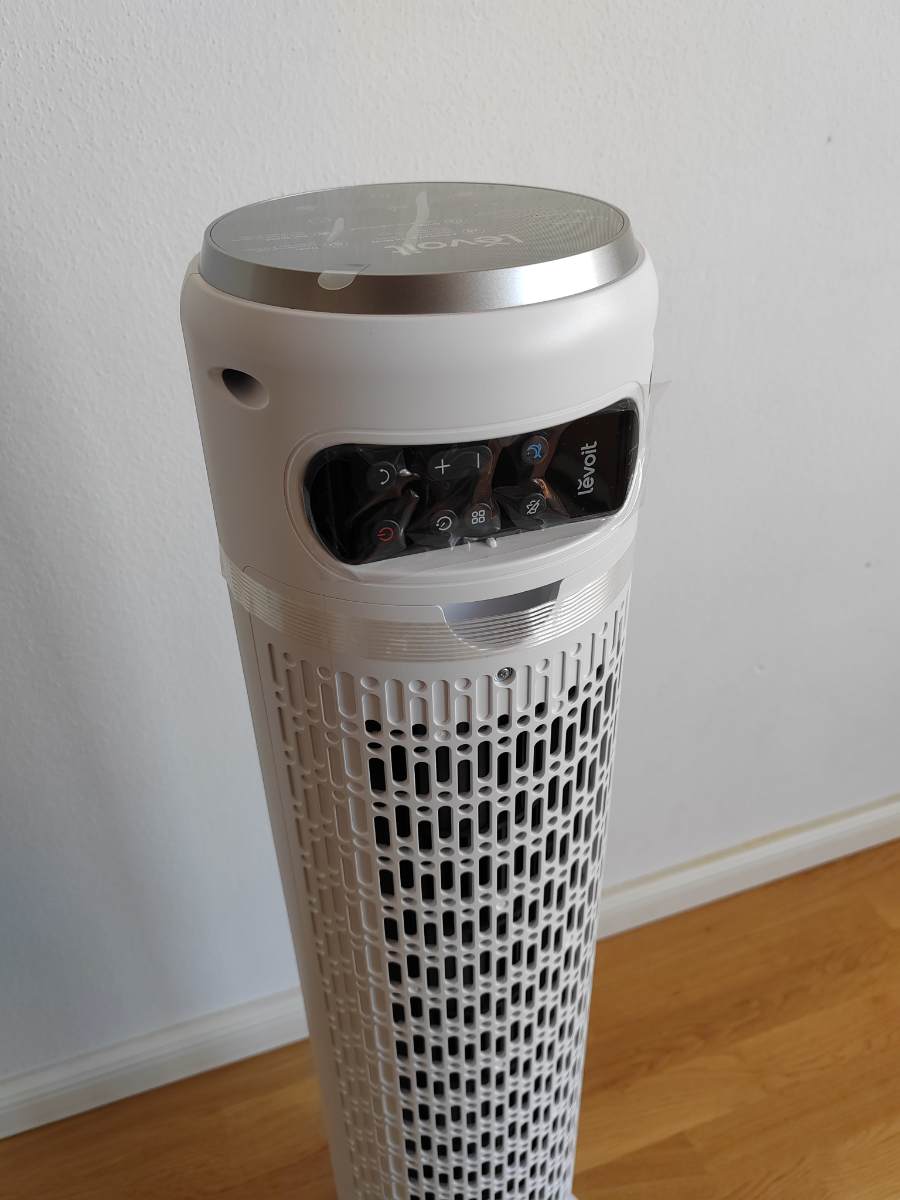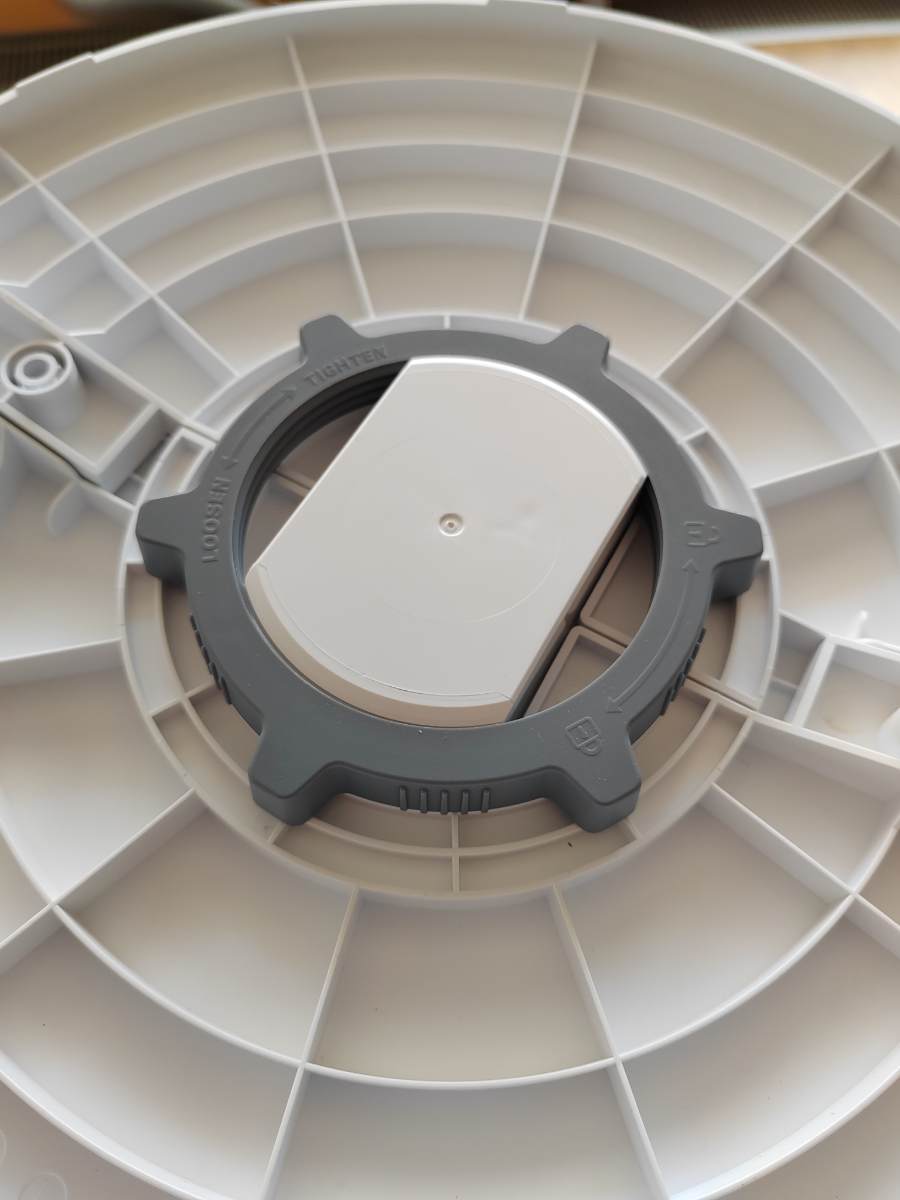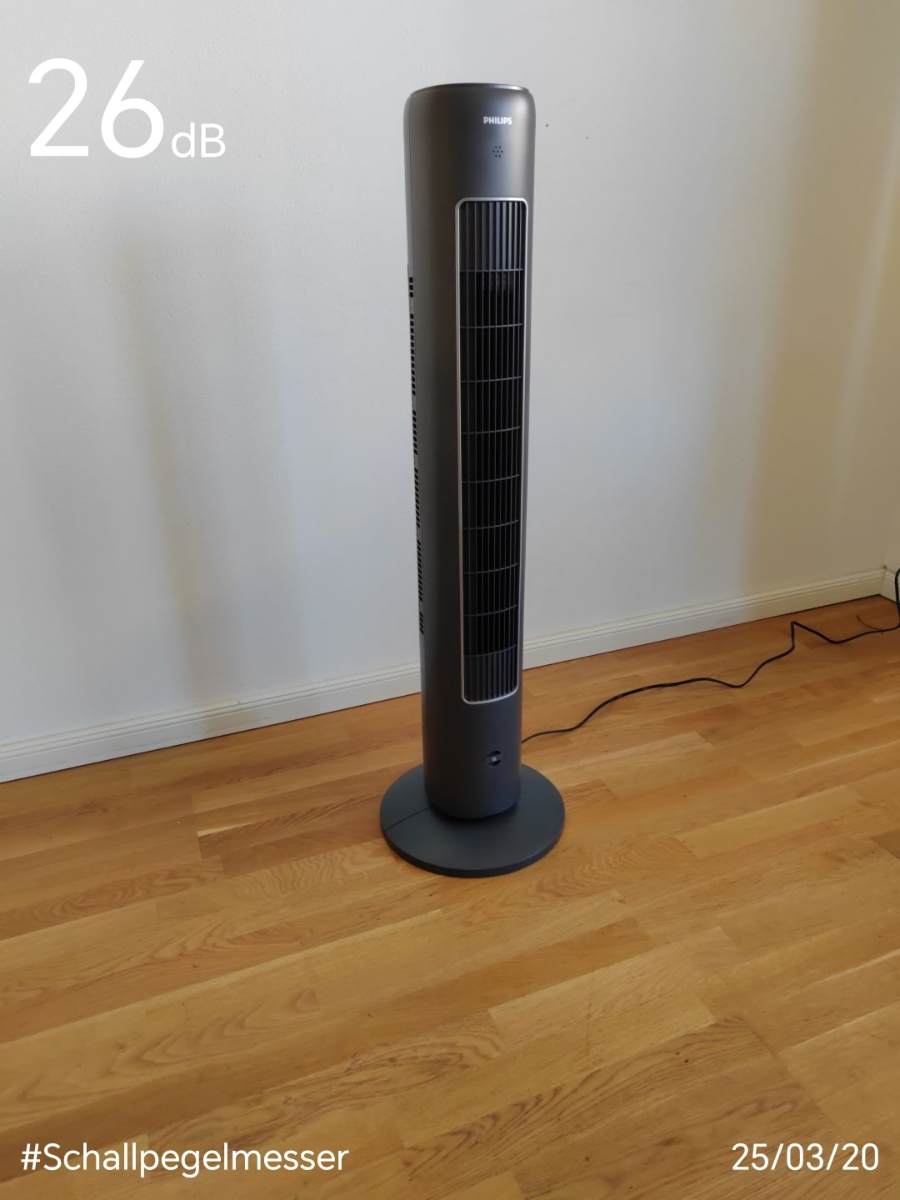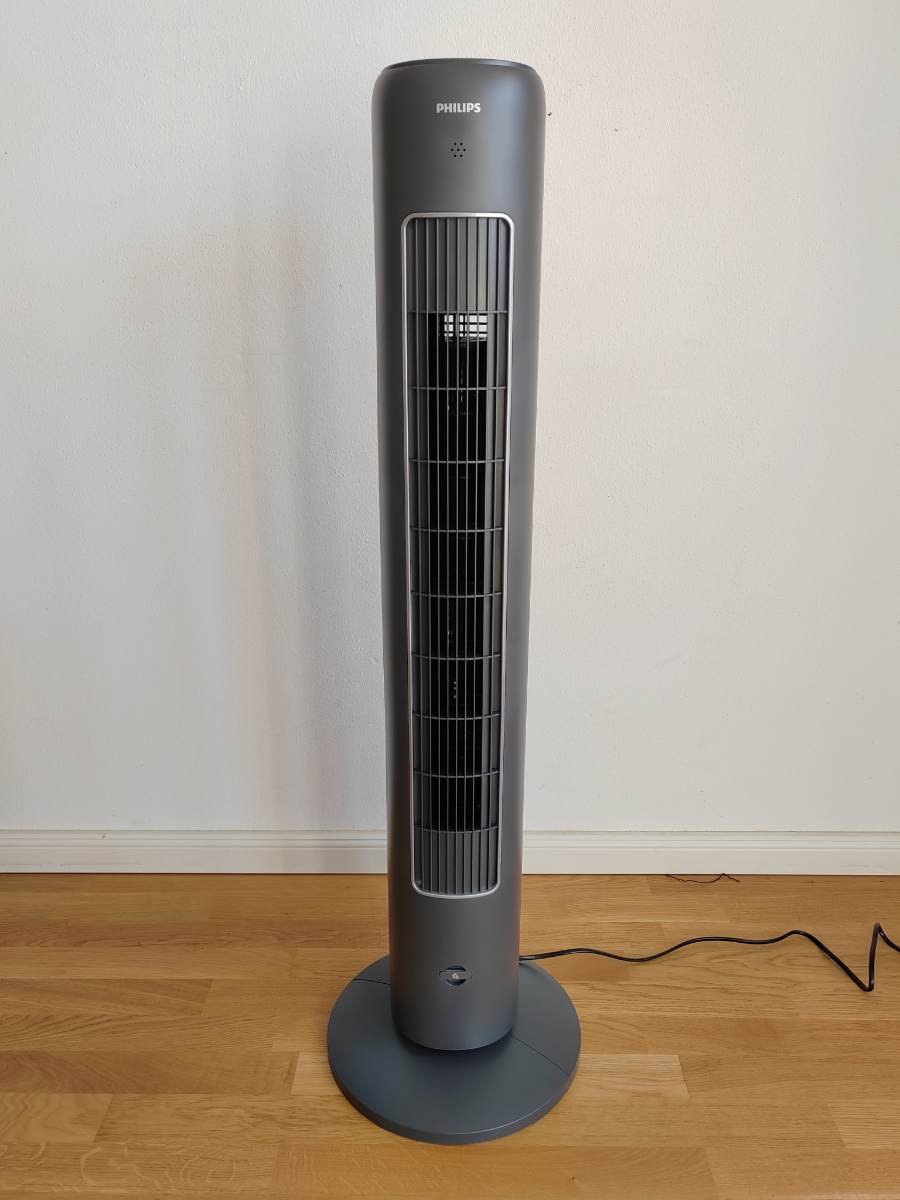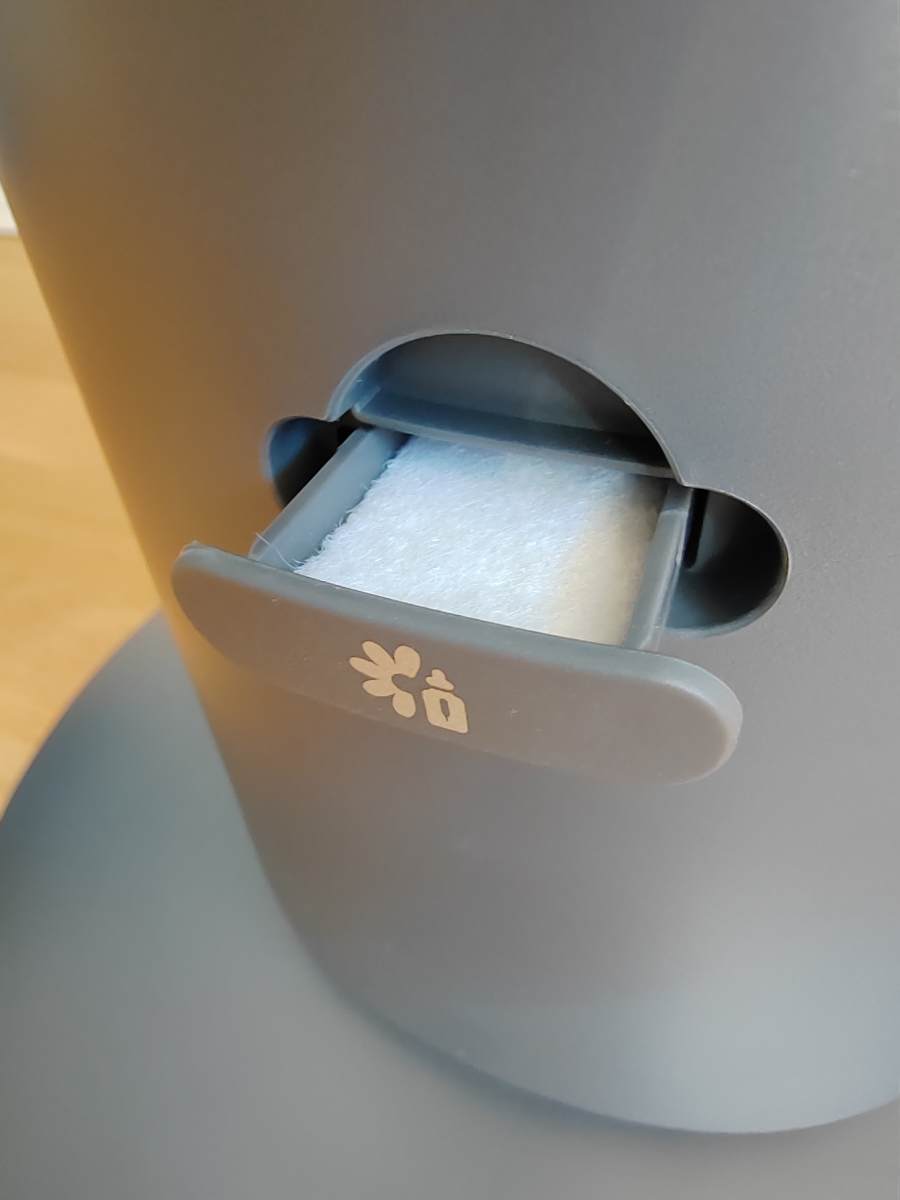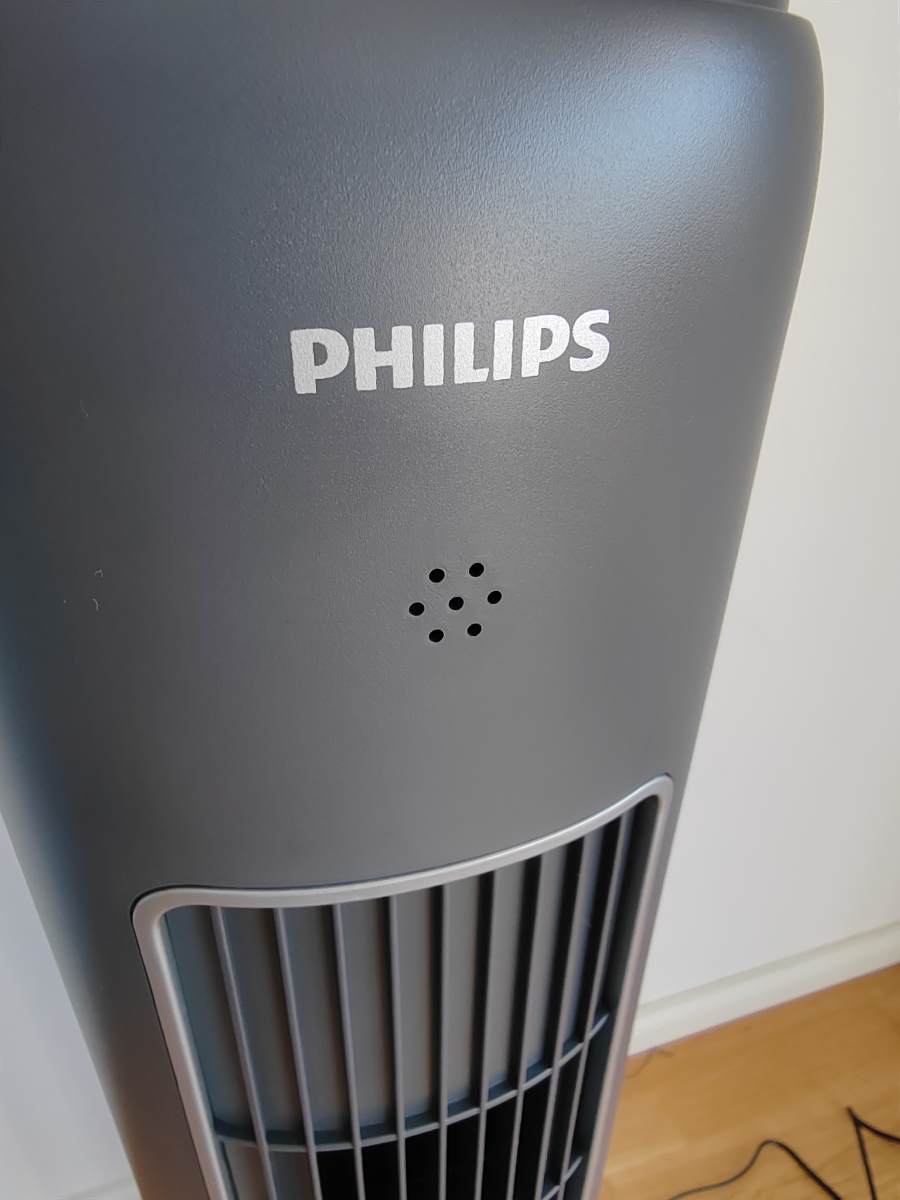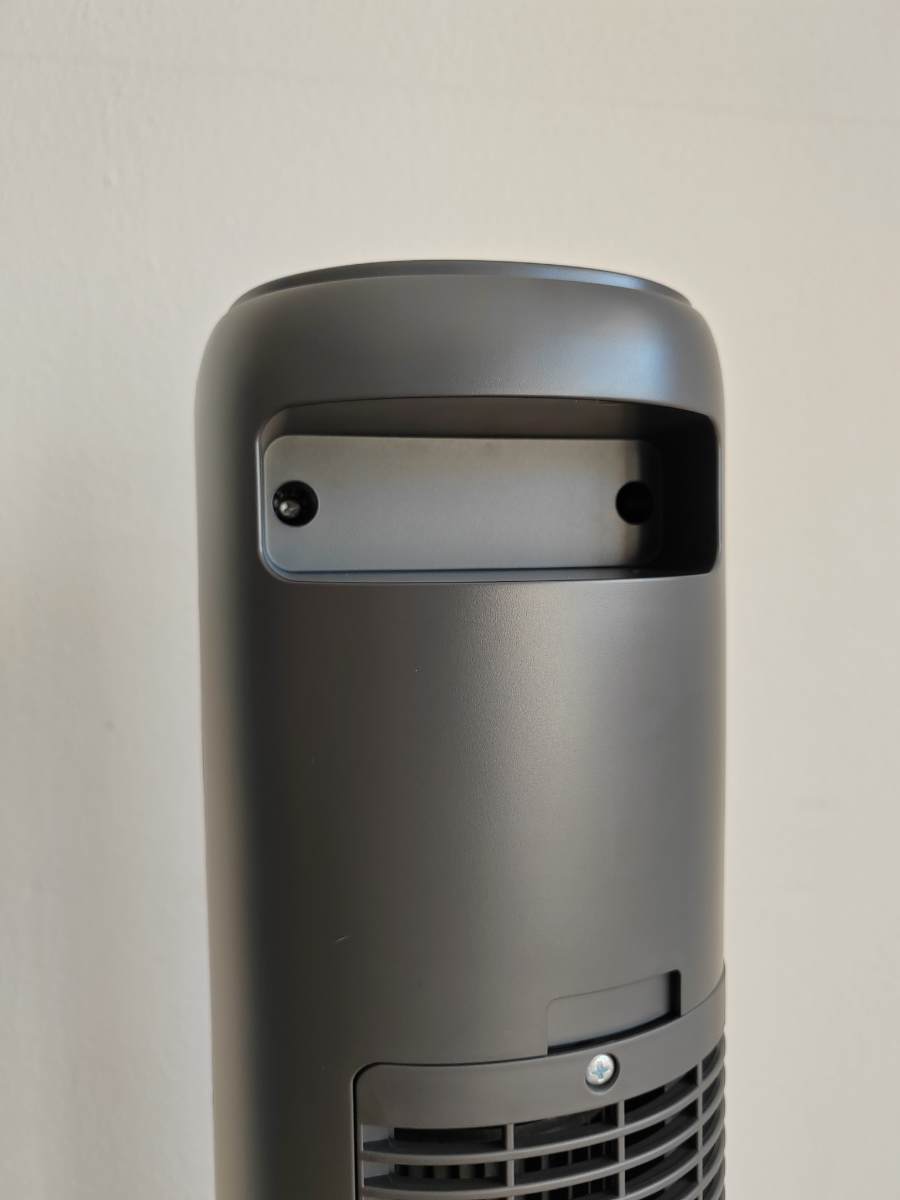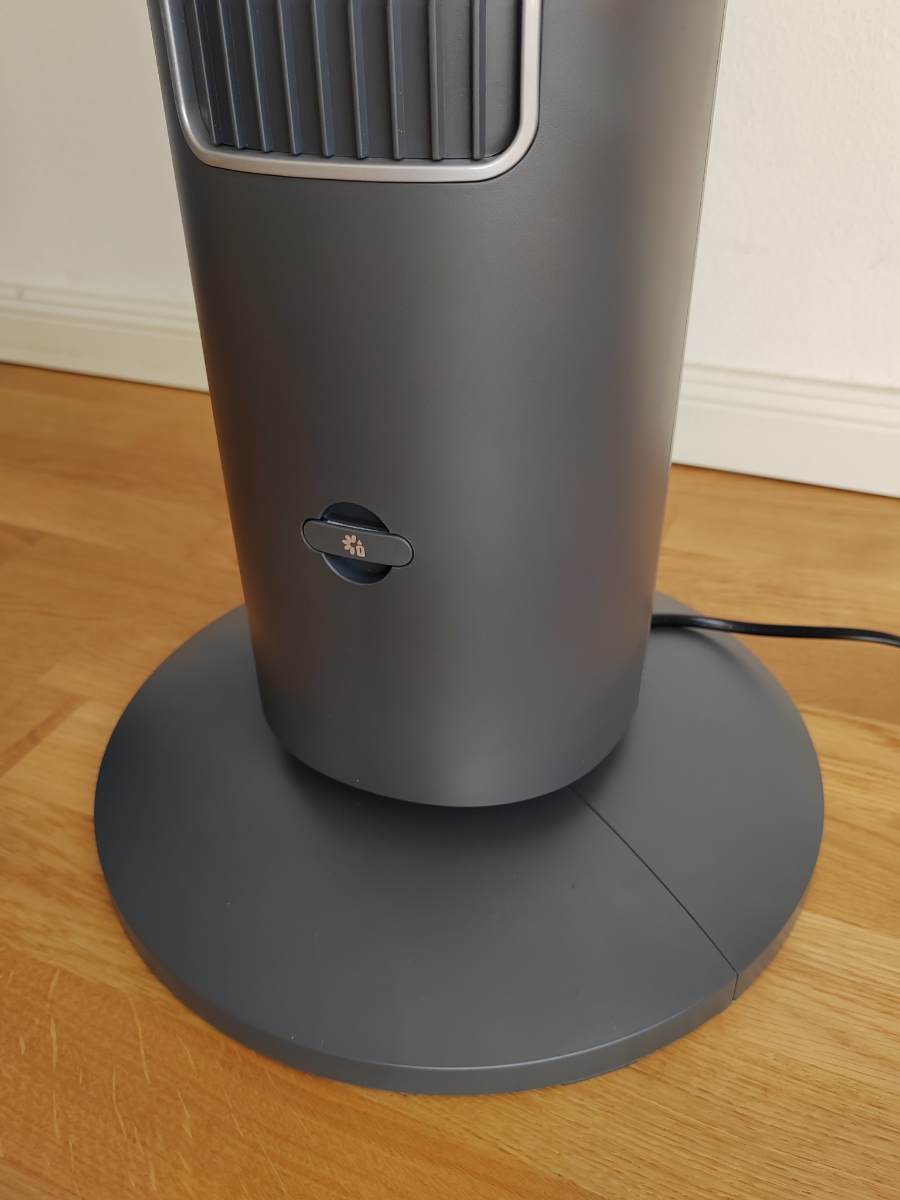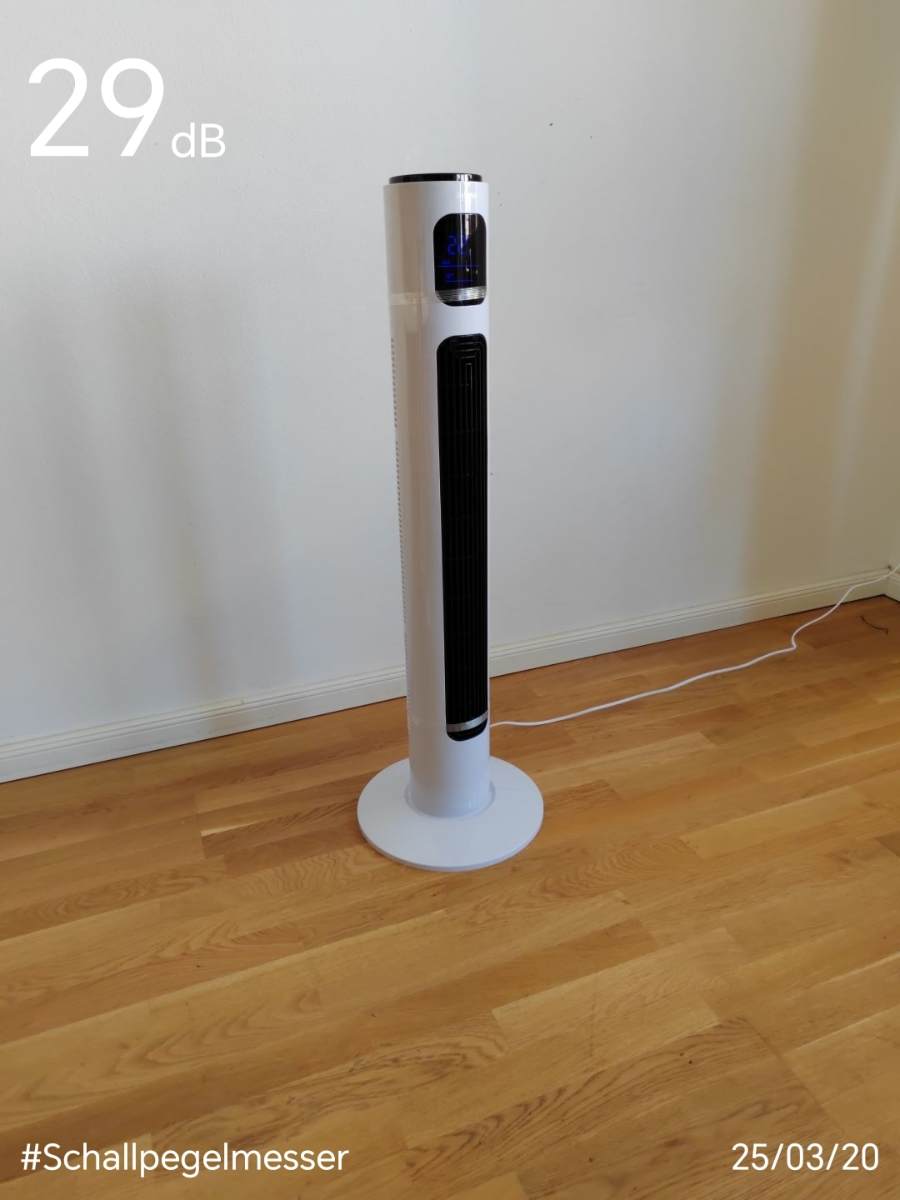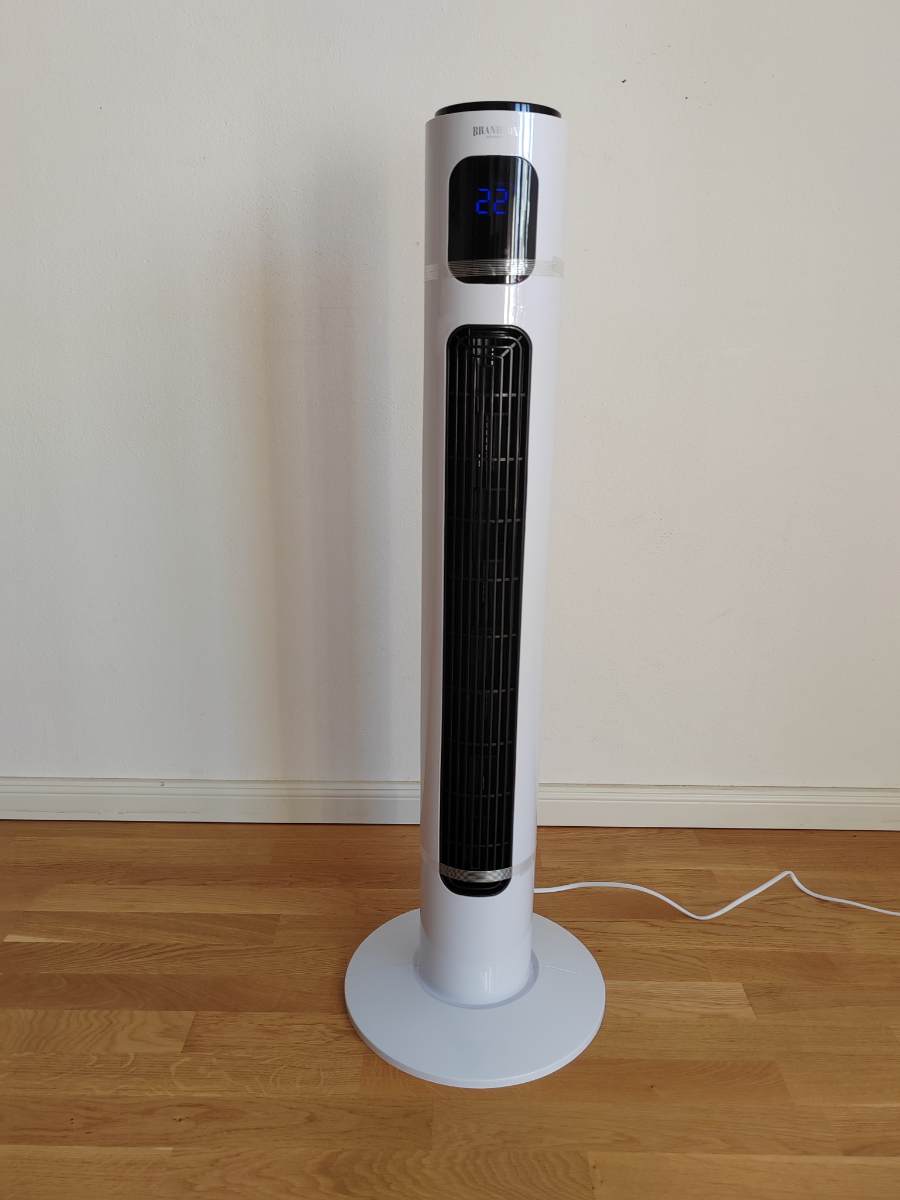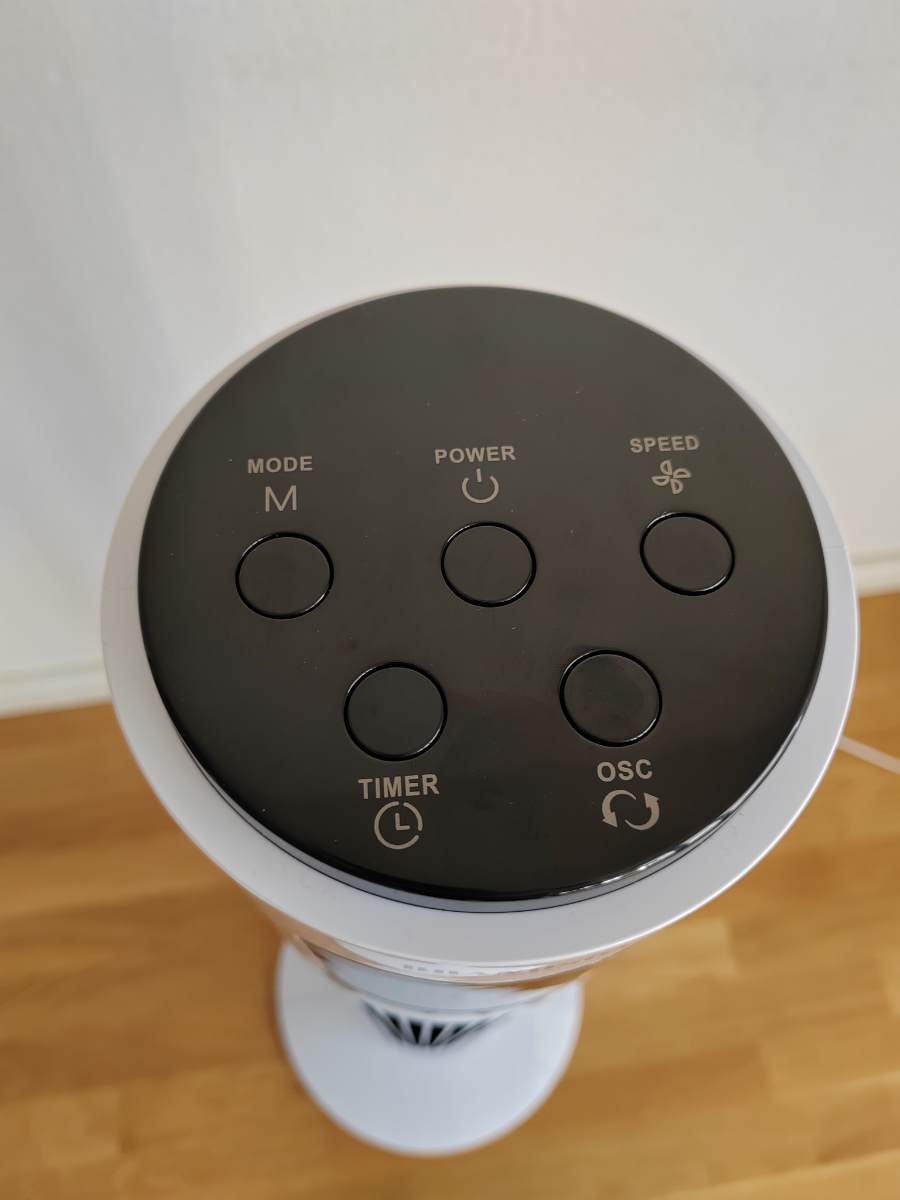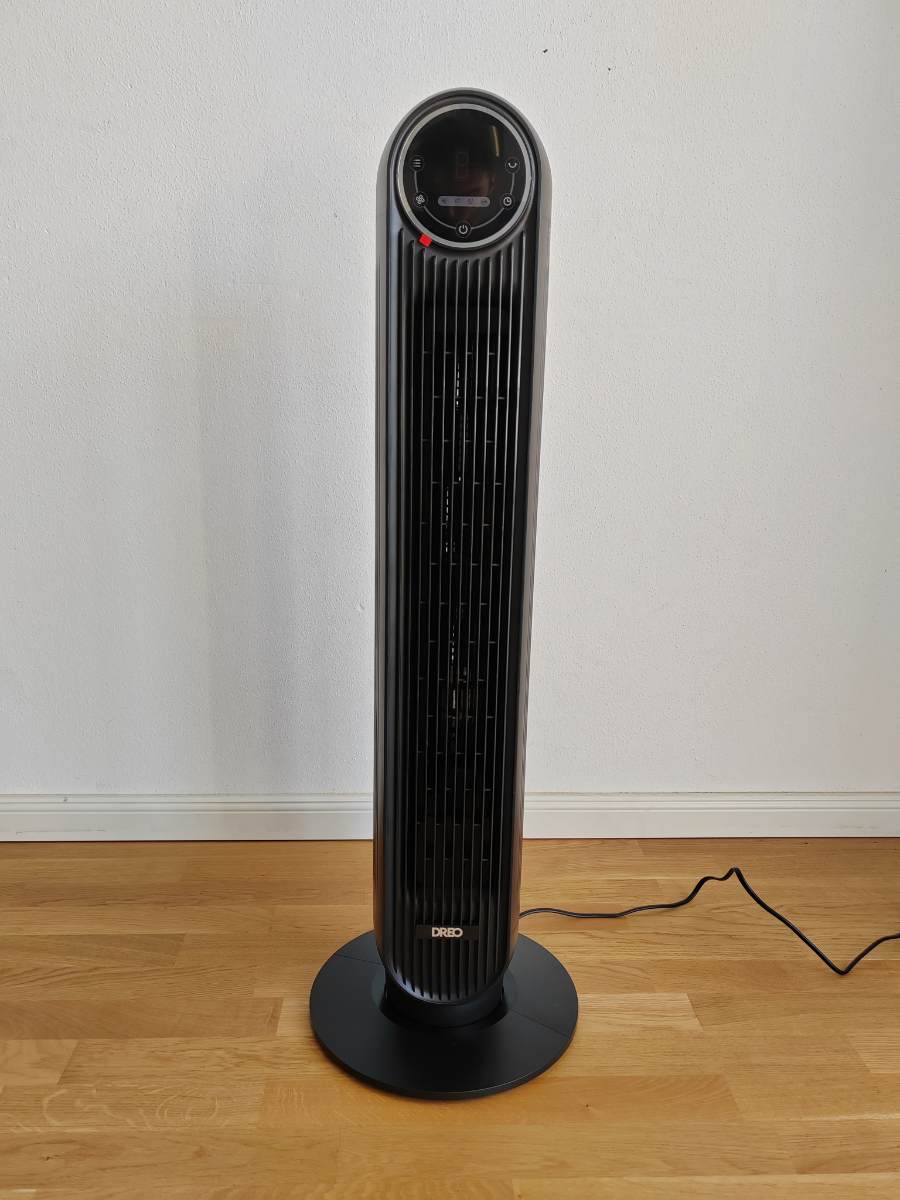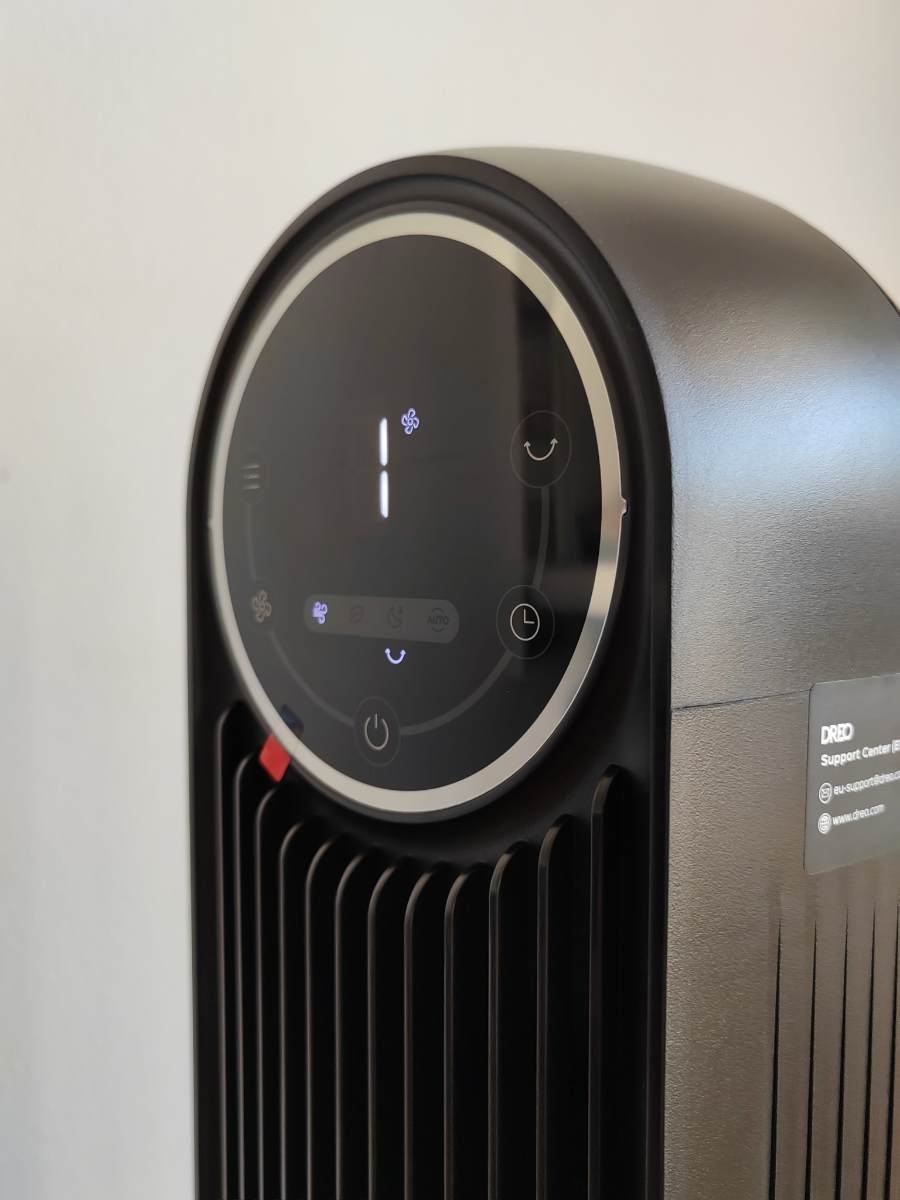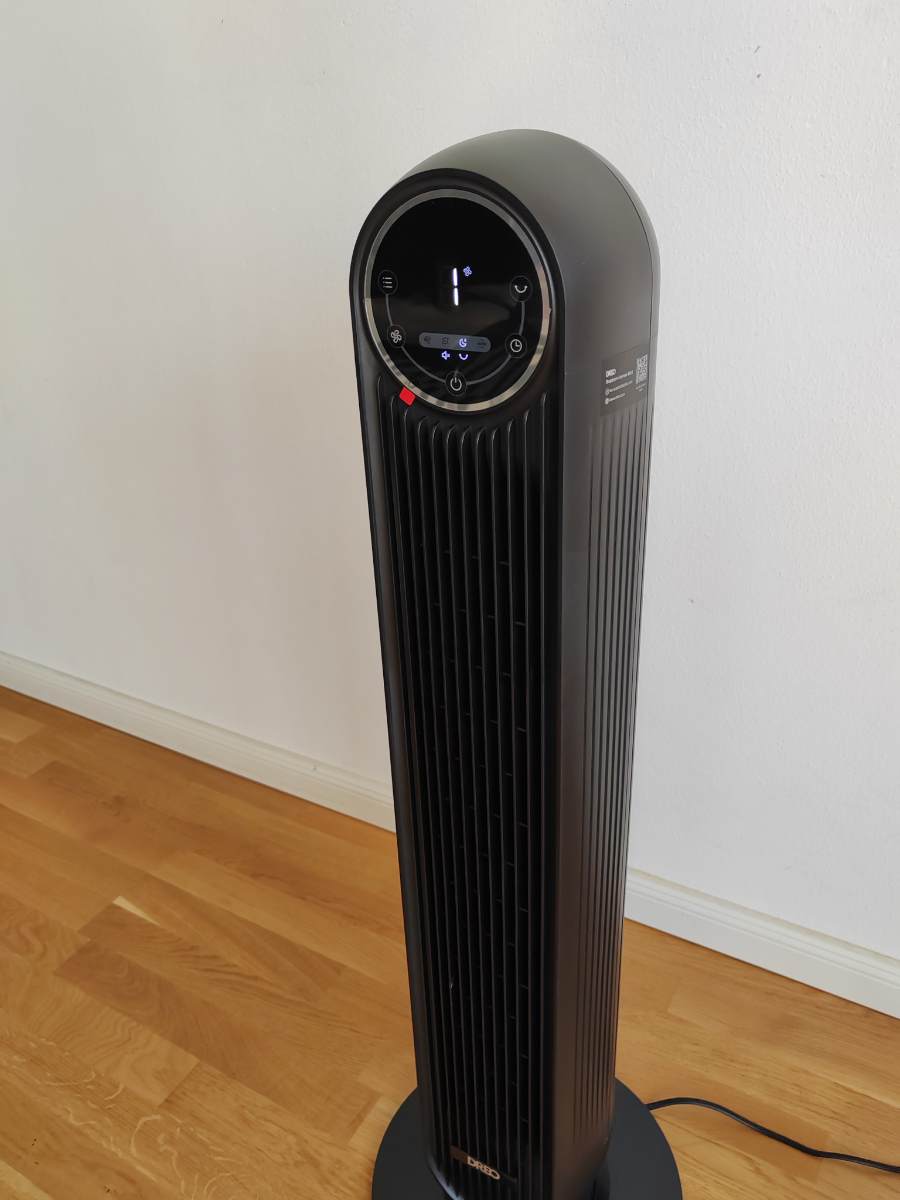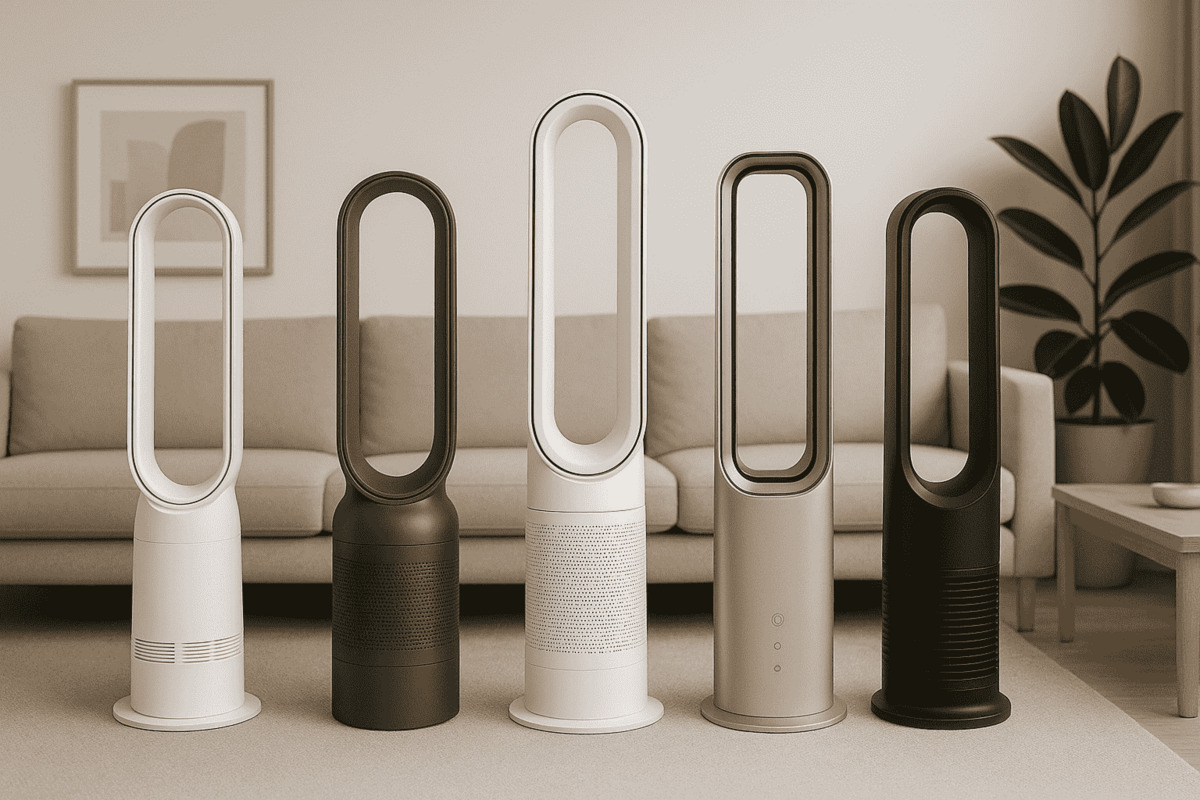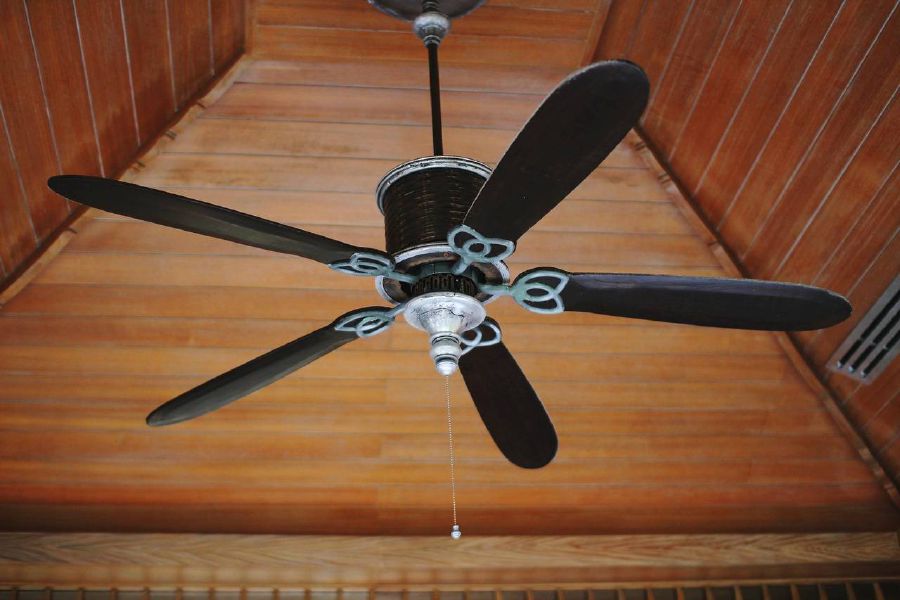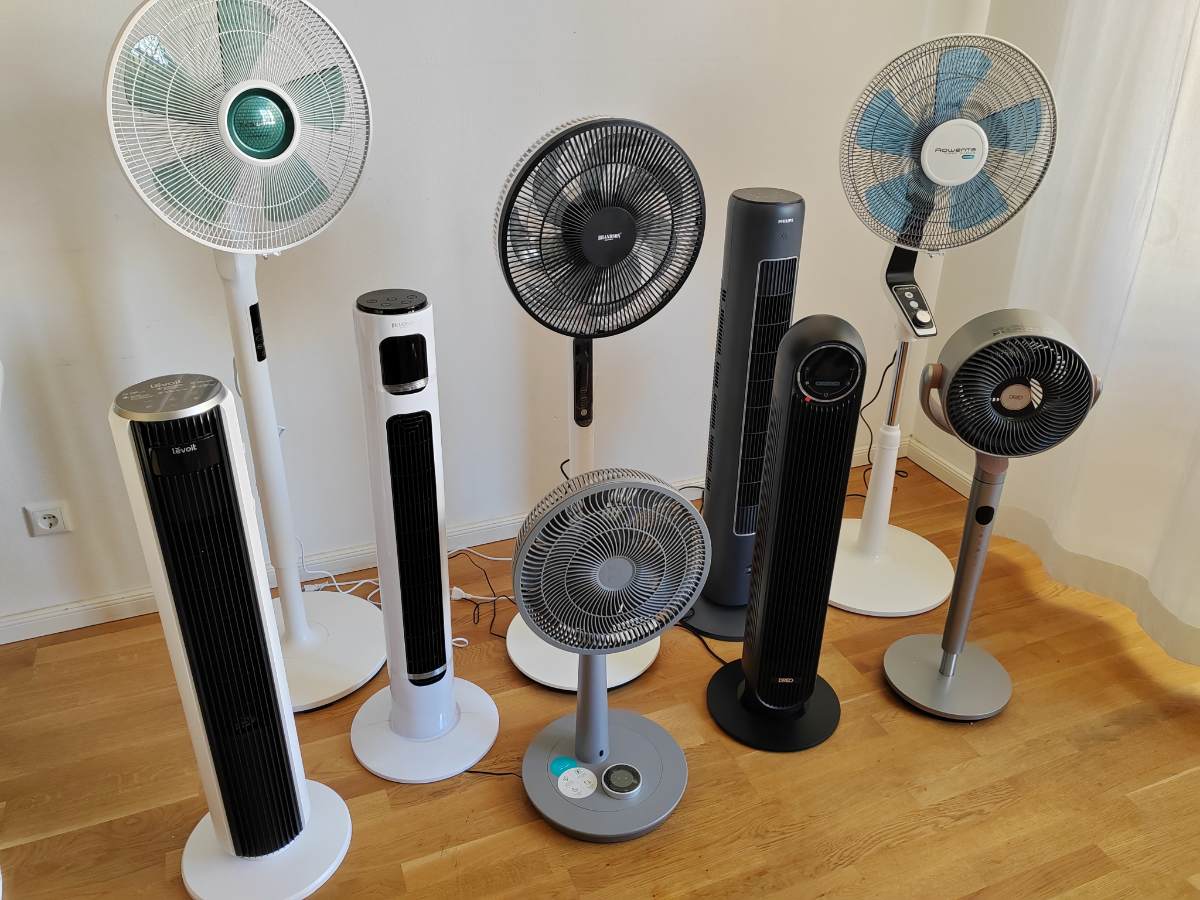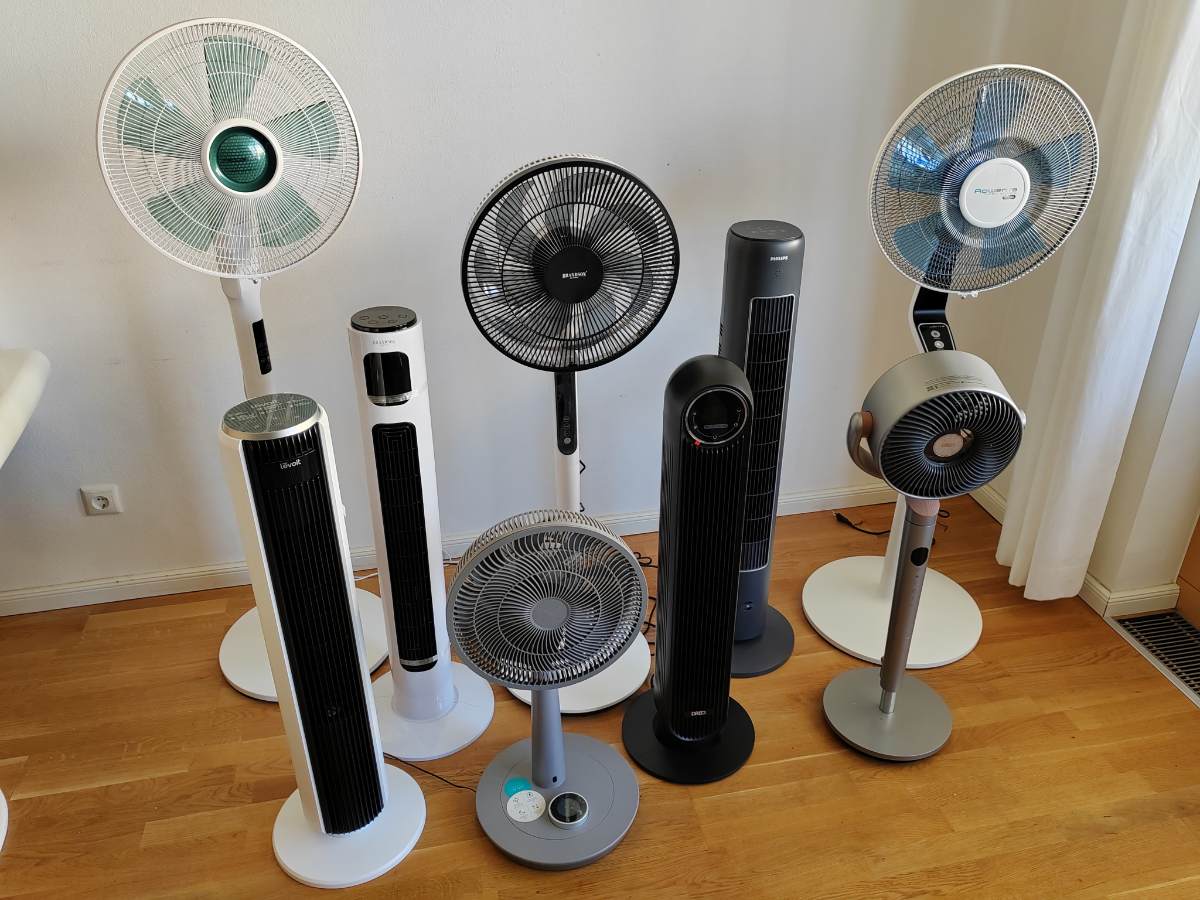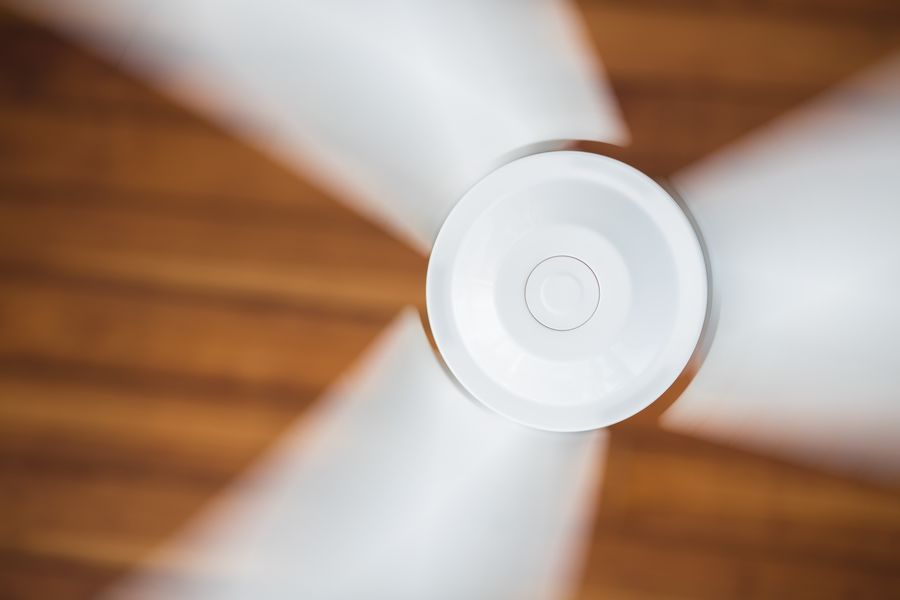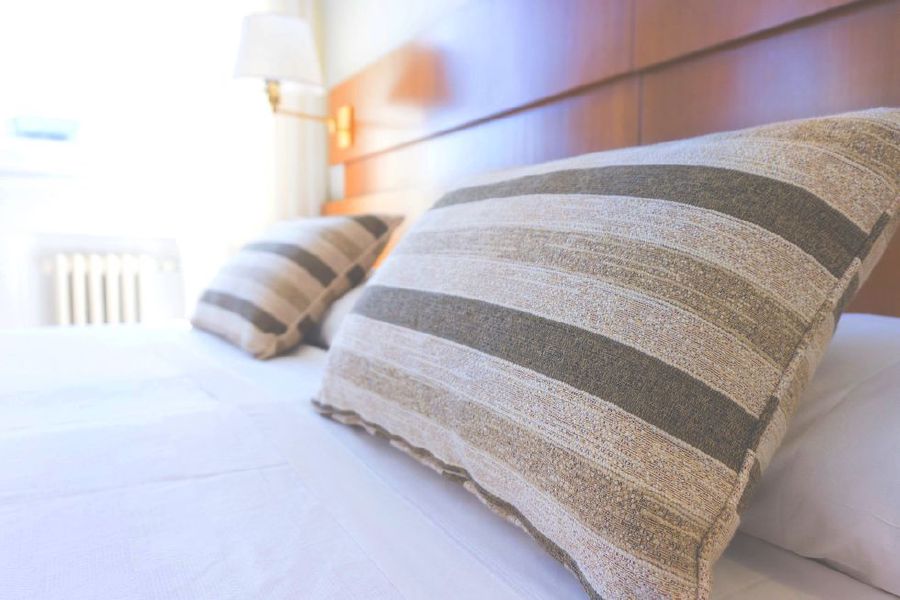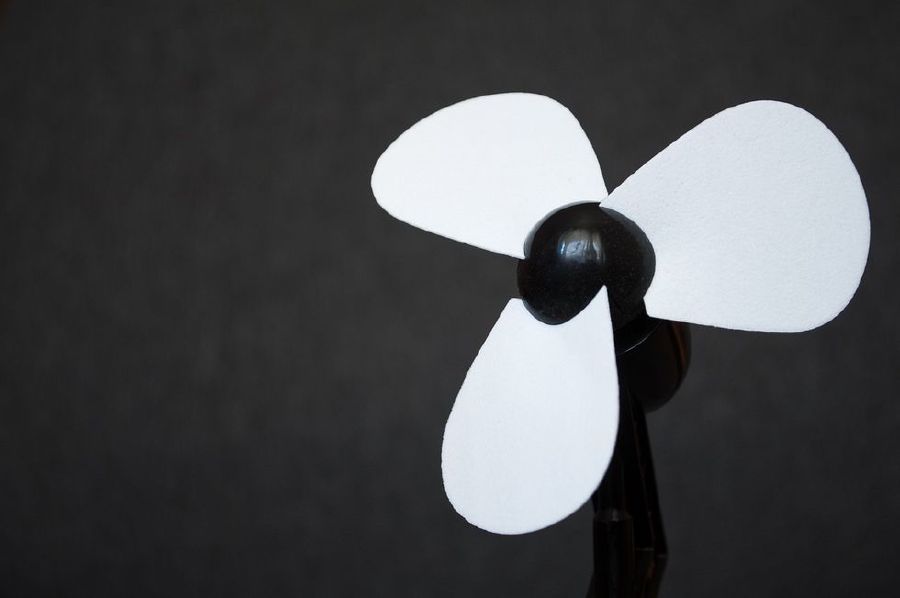Best Oscillating Tower Fans – Quiet Bedroom Models with Remote Control
Oscillating tower fans are becoming increasingly popular. They are gradually replacing pedestal fans in offices and private living spaces. Their main advantage is a space-saving design combined with versatile cooling performance. That said, real-world effectiveness varies widely between models.
We tested the best tower fans of 2025, measuring real noise levels, airflow performance, and features like sleep mode and display controls. Our rankings are based on hands-on testing, not marketing claims.
Best Oscillating Tower Fans Worth Buying (Tested Picks – Quick Overview)
- Levoit – very quiet (best for bedrooms)
- Philips 5000 Series – quiet (living rooms)
- Brandson – best budget oscillating tower fan
- Dreo – best all-around oscillating tower fan with remote
- GoveeLife – best smart tower fan with app control
- Brandson – best budget tower fan cooler with water
- Dreo – with water cooling (hot & dry climates)
Before we look at the functions in detail, let's first clarify what a tower fan actually is and how it differs from conventional pedestal fans.
Important: Tower fans should not be confused with bladeless (rotorless) fans. Bladeless fans use a completely different operating principle. For this reason, performance, airflow behavior, and use cases differ significantly. If you’re unsure whether a tower fan or a pedestal fan is the better choice for your needs, you can find all key differences explained at a glance in our detailed comparison article.
Difference Between a Tower Fan and a Pedestal Fan
A classic pedestal fan features clearly visible blades, usually enclosed within a protective grille. The grille is designed to shield users from the rapidly rotating blades while allowing strong airflow.
In contrast, the tower fan is much more compact. It has no wing blades. Instead, in most tower fans, a construction consisting of individual Slats.
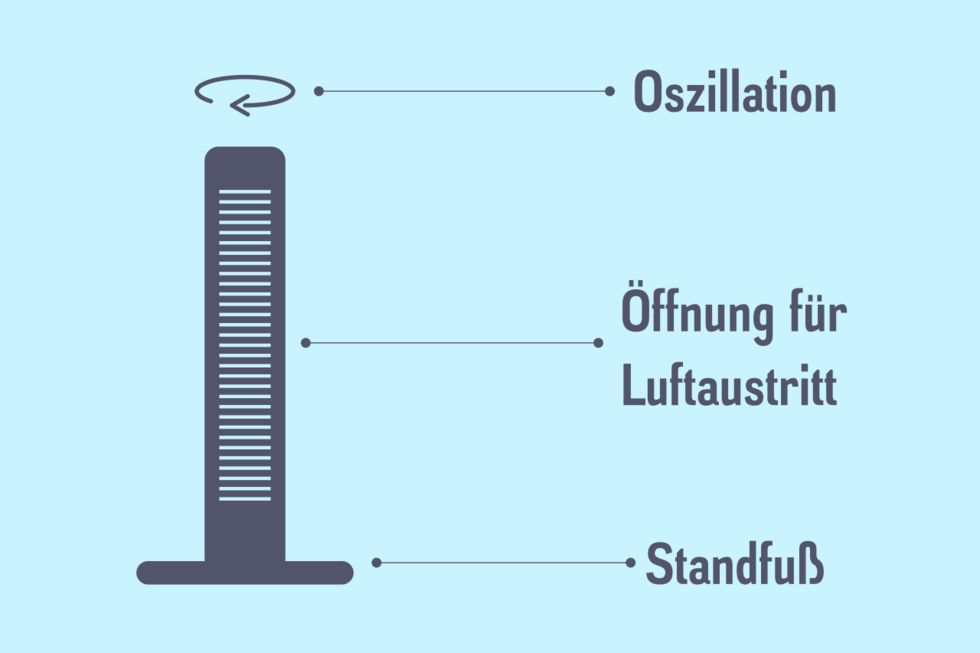
A tower fan also has a grille that protects against the rotating parts inside.
The tower fan has two openings. Air is drawn in through one and blown out through the other. In some models, the latter is equipped with a movable flap that determines the direction in which the air is blown out.
Key Features of Oscillating Tower Fans (What Really Matters
Depending on the model, various functions are built into the appliance. In my opinion, the most important one is oscillation, i.e. the automatic left-to-right oscillation of the air flow.
Oscillation is especially useful when a fan needs to cover multiple workstations in an office. When oscillation is enabled, the fan can distribute airflow across the room without being moved, allowing each workstation to receive airflow alternately.
In addition to oscillation, many more functions are available today, which are sometimes more or less useful depending on the application.
Fan Speed Levels & Airflow Control
Another of the most common functions is the ability to determine the strength of the airflow. Some situations require a strong airflow, others require a weak or very quiet airflow.
When the tower fan is at approx. in the bedroom it should be set to a low and, above all, low temperature at night. Quiet level can be adjusted. This is not only important in terms of volume: a strong draught that persists for a long time can be detrimental to health.
Tower Fans With Water Cooling: Useful or Gimmick?
Appliances with a built-in water tank are now relatively rare. The water is used by the tower fan to humidify the air.
The problem indoors is usually that the humidity is too high. If it is too low, a humidifier can help. The combination of humidifiers and tower fans is not so space-saving. The water tank and the additional pipes take up more space.
Before you buy a tower fan with a water tank and air humidification, I would think carefully about whether the function is really necessary. Last but not least, the Refilling the tank more work. The additional cooling is also limited. A stream of air with fine droplets has a cool effect on the skin, the Room temperature hardly changes.
Timer & intervals
A fan should improve the indoor climate and at the same time do little work. This is why built-in timers or interval functions are useful.
With a timer, you could set the Automate operation. Instead of activating the control panel several times a day, it would be sufficient to set up a suitable time period once. For example, the fan could switch on every day from 12-15 o'clock and then switch off again. This would counteract the greater heat during the midday hours.
Apart from simply switching on and off, some models offer additional setting options. For example, an interval function that Strength of the air flow varies at regular or irregular intervals.
Some people find a constant, steady draught of air unpleasant. Fans that change their intensity regularly or irregularly come much closer to the more natural feeling of wind outdoors.
Tower Fans with Remote Control
In addition to the timer, a remote control can be practical. If the intensity of the sunlight changes several times a day due to the shape of the building, a timer alone is no longer sufficient.
With a remote control, you stay in control without having to constantly get up and go to the control panel. This way, you can regulate the air flow from the comfort of your couch and adjust it to your needs.
My advice at this point would be, to use a device in which the remote control can be stored. This is the case with many models. There is a small compartment or flap on the housing for this purpose. Remote controls can easily get lost. A suitable storage space in the device reduces this risk.
Carrying handle
From time to time it is necessary to move the fans. Be it because the hot season is over, the appliance is now needed in another room or because it is put aside for vacuuming.
At this point, an appropriate carrying handle or a suitable Recess in the housing practical. Moving a tower fan without a handle can be tedious - it wouldn't work with one hand without a handle.
I also find it reassuring to know that there is a place that is designed to be gripped for carrying. It would be a shame to damage the device just because it is held incorrectly or your fingers slip when carrying it.
How to Choose the Best Oscillating Tower Fan
There are a few important points to consider when buying a tower fan. They are crucial in determining whether a device suits your needs and fulfils your requirements. Here is a list of all the important purchasing criteria:
- Air circulation
- Stability
- Volume
- Consumption
- Additional functions
- Price
- Design
Let's take a closer look at these points and clarify why exactly this criterion is, or at least can be, important when making a purchase:
Air circulation
Air circulation refers to the amount of room air that the fan can move in a certain time. Among the manufacturer's specifications, the circulation is often described as cubic metres per hour specified. Usual values from 100 to 500m³/h.
It is mainly the power and size of the fan that determine the amount of air moved.
Stability
In my opinion, the stability of tower fans is still a fundamental problem. This is simply due to the shape: the higher the appliance, the wider the base has to be. A base that is too large just doesn't look as stylish.
Another way to increase stability is to shift the weight to the lowest part of the structure. This is where the motor is usually located and it is heavy. This type of construction is already quite stable, but my criticism of tower fans remains: Most of them can tip over too easily.
Admittedly: The appliance will not run the risk of tipping over too often. However, in a private household with children or pets, this risk should not be underestimated. That's why it's important to look out for products that have a wide base and are not too high.
Volume
For me, the noise level is a key factor for a fan. It should be nice and quiet, of course. A loud noise is not only annoying when working, relaxing on the sofa or having a conversation: if the fan is too loud, it is hardly suitable for use in the bedroom. Yet the bedroom is a room in which most people pay a lot of attention to a good indoor climate.
A good Orientation point is 25-28 dB. Within this range, the volume is quite pleasant. It may still be too loud for the bedroom. But the tower fan will probably not be running at the highest level there and will therefore be a good deal quieter.
Energy consumption
Fans should not be power guzzlers. Just like the fridge, washing machine or lighting, fans can easily run for several hours a day. For this reason, it is worth looking specifically for an energy-saving fan.
For tower fans, values around the 40 watts justifiable. The device should not be much higher than this. As I said, every watt counts because of the potentially long runtime.
Additional functions
Depending on the area of application and personal preferences, the possible additional functions are interesting. The vast majority of models have a timer, several intensity levels and can swivel the direction of the air flow back and forth.
The functionalities mentioned are practically already standard. A surcharge is therefore only justified if the appliance can offer additional features - for example, app control, connection to smart home systems such as Alexa or Siri or a built-in humidifier.
If you are also looking for greater cooling performance without complicated installation, you should take a look at a Mobile air conditioning without exhaust air hose throw - it offers more than just air movement.
Price: How much does a good tower fan cost?
A solid tower fan doesn't have to cost a lot. Recommended models start at around £60. In my opinion, a sensible upper price limit is £150. Beyond that, the price-performance ratio suffers in my opinion.
Of course, there are products with significantly higher prices, but they hardly offer any more tangible functions.
The design
As already mentioned, tower fans are often more attractive to look at than pedestal fans. And although tower fans generally cut a slim and attractive figure, the visual differences between the models can be debated.
The greatest visual differentiation is based on colour. Black, white and grey are the most common. Strongly saturated and bright colours are rarely found. This is probably due to the fact that manufacturers like to offer colours that can blend in with many furnishing styles. White and black are the obvious choice.
If you are looking at a model with a dark, even black or shiny black surface, dust will become visible very quickly on these surfaces. Fingerprints are also easier to spot on these.
On the other hand, white or light-coloured surfaces can yellow over time. There is a clear winner here. At best, a white model is not recommended for a smoking household.
Where to put the fan?
Depending on the room layout, some locations are more suitable than others. In general, a tower fan should not be aimed directly at yourself or another person. Prolonged exposure to a constant, direct airflow can be uncomfortable and may cause irritation or muscle tension. For this reason, modern buildings are designed to minimize unwanted drafts.
For tower fans with automatic oscillation, placing the unit in a corner of the room is often a good option. on. But only if the oscillation angle reaches up to around 90°. Above this, it hits the wall, which is not very effective. If the fan can reach a larger angle cover, then he is welcome to Continue to the centre room be placed.
Cleaning
Cleaning tower fans is not that difficult. Most devices should only be Wiped with a dust cloth be. If the surface is glossy black, a small layer of dust will be noticed more quickly. On the other hand, dust is less visible on white and matt surfaces.
In a room with a lot of textiles and correspondingly more dust, I would recommend a device with a matt colour.
If the tower fan has a Filtersthen this should either be cleaned or replaced at regular intervals. be exchanged. If you have your eye on a model with a filter, quickly check before you buy whether and, if so, how often they need to be changed and how much they cost.
Best Oscillating Tower Fans Worth Buying (Tested Picks – Quick Overview)
Our top tower fans ranking compares real performance, noise levels, and features across different use cases. Whether you need a quiet tower fan for your bedroom or prefer stronger cooling power for your living room, our guide covers options that balance price, comfort, and practical functionality.
Levoit 21 dB Oscillating Tower Fan - Best Quiet Tower Fan for Bedrooms
The Levoit is a little louder in direct comparison to the Brandson pedestal fan: 21dB (although you can hardly hear it) at the lowest level - this is almost exactly the manufacturer's specification of 20 dB and is one of the quietest models on the market.
The Assembly was completed in less than three minutesand the The stand was the quickest and easiest to install compared to other devices. Particularly impressive: Although it runs so quietly, the Air flow at level 1 strong enough to blow out a candle from a distance of three metres - a rare value in this appliance category.
On Stage 12, the Levoit delivers an air velocity of up to 7.9 m/s - more than enough for a quick cool-down on hot days. Thanks to the 90° oscillation the air flow is distributed evenly throughout the room. The LED display with temperature display, Tower Fans with Remote Control, 12 speed levels, 4 modes and a 12-hour timer round off the overall package. The fan in plain white also cuts a fine figure visually.
Important to know: With most tower fans, the air flow can be Do not adjust verticallybut flows always straight ahead. With a price of around $71.99 the Levoit offers a Impressive overall package of smooth running, performance and ease of use - Perfect for all those who also want to don't want to do without a cool breeze, but appreciate absolute peace and quiet.
Philips Oscillating Tower Fan with Remote - Best for Living Rooms
The tower fan from Philips is a Solid, functional fanwhich is particularly characterised by its Size, air performance and quiet operation convinced. Compared to other models such as the Levoit, Brandson or Dreo, it falls short of the mark. larger and also offers more powerwithout getting loud.
The Wide air outlet According to the manufacturer, it provides an air flow of up to 2230 m³/h - You can tell: the room is ventilated noticeably quickly. Philips specifies a noise level of 39 dB (min) to 46 dB (max) to. In my test, the volume at level 1 was only approx. 26 dB. That is Very quietbut still perceptible - more of a gentle hiss. Immediately after switching on, there was a Short electronic buzzing audible, which disappeared after approx. 30 seconds. Possibly device-specific.
- 3 speed levels
- Nature mode with changing air intensity
- Oscillation approx. 60° horizontal
- Timer from 1 to 4 hours
- Remote control included (with limited range)
With 3 speed levels and 3 modes (including a natural mode with varying intensity), the device offers enough variety for everyday use. The natural mode in particular conveys a pleasantly changing feeling of ventilation - from a gentle breeze to a powerful airflow. The integrated Timer (1 to 4 hours) is also practical, especially for the bedroom.
A nice extra is the Flavour diffuserwhich can be filled with your own essential oils. If you like subtle fragrances, you can also create a relaxing atmosphere - even if this remains more of a bonus feature.
The Design is slim, simple and space-savingideal for living rooms with limited space. The workmanship is of high quality throughout and assembly is quick and easy.
Brandson Oscillating tower fan Budget-friendly option
The Brandson tower fan is one of the cheaper models in our test and offers an astonishing amount of features: 3 speed levels, 3 operating modes (including a natural mode with alternating air flow), Timer (1-12 h) and a Remote control with holder directly on the device.
The manufacturer specifies a volume of 38 dB at the lowest level on - we measured around 29 dB. This is quiet, but already audibleespecially in very quiet surroundings. For sensitive ears in the bedroom Not idealbut still within an acceptable range.
The Air distribution is well solved by the 96 cm heightand also the 60° oscillation ensures proper area coverage. The Stand is heavy and offers good hold. One small weak point: the Display is difficult to read in daylight.
Overall a Functional, affordable tower fanwhich is technically solid, but cannot quite keep up with the quieter top models when it comes to volume. Who wants a Small budget If you've got a lot of appliance for little money, it's worth paying a little more for quieter models.
Dreo Oscillating Tower Fan with Remote - Best All-Around Tower Fan
The Dreo Nomad One is a compact, 92cm high tower fan, which in the test was characterised by Good workmanship, simple operation and solid cooling performance has convinced us. Despite its size, it delivers up to 7.3 m/s Air velocity a powerful air flow that noticeably ventilates the room.
The assembly was uncomplicated: Unscrew and lock the standand the device is ready for use. The Oscillation works reliably, covers approx. 90° and distributes the air evenly in the room.
In the test, at level 1 we have about 31 dB measured - so slightly above the manufacturer's specification of 28 dBbut still pleasantly quiet. Particularly positive: The display switches off completely in night mode and the device is running Automatically mutewhich creates a very pleasant atmosphere in the bedroom.
With 4 modes (Normal, Nature, Sleep, Auto) and 4 speed levels the fan is well equipped. It can be operated directly on the device or conveniently via the Supplied remote control. Cleaning was also carried out with Removable grille and impeller cleverly solved.
GoveeLife 27 dB quiet tower fan - Best Tower Fan with Water Cooling
The GoveeLife tower fan impresses across the board with its sophisticated technology and smart control. It can be set up in just a few minutes and the app connection and voice control (Alexa, Google, Siri) work seamlessly. Particularly convenient: The fan remains whisper-quiet even with good air circulation - The manufacturer states 27 dB, which feels absolutely quiet in everyday use.
With 12 speeds, 5 modes, 24-hour timer and the possibility to Customise oscillationthe GoveeLife clearly stands out from classic tower fans. The Colour-adjustable LED light provides modern accents - ideal for bedrooms or living rooms. The app allows scene control, schedules and customised routines. There is some criticism of the stability on soft surfaces and limitations in scene programming.
Who is a Quiet, powerful and smart device If you are looking for a sustainable fan with a good price-performance ratio, you will find it here. Many users have even been able to reduce the use of air conditioning. Ideal for modern households focussing on comfort and design.
The GoveeLife 42″ Smart tower fan convinces with Whisper-quiet operation from 27 dB, up to 12 speed levels and 5 modes - perfect for customised cooling. Thanks to App and voice control the fan can be conveniently automated. The Customisable oscillation and the Integrated LED ambient light round off the stylish smart home device.
Brandson tower fan with water cooling - Effective cooling for summer
The Brandson tower fan with cooling is one of the most popular models on the market - and for good reason. Especially on hot summer nights, it shows what it's made of: pleasantly quiet air circulation, even at a low setting. Many users, including us, confirm that it is in the bedroom without disturbing your sleep.
The three speed levels are completely sufficient for everyday use. At level 1, the air flow is already very noticeable, at level 3 it provides noticeable relief from stuffy room air - while the Moderate noise level. The 60° oscillation distributes the air evenly and ensures pleasant cooling throughout the room.
Assembly is quick, even the stand is stable, even if it is made of lightweight plastic. The Design is modern and unobtrusiveThe fan blends in well in the living room or bedroom. Particularly practical: The enclosed remote control enables convenient control of all functions from the sofa or bed. Another plus: The timer can be set flexibly in half-hour increments - up to 7.5 hours.
A small disadvantage: Some users report a slight plastic odour in the first few daysbut this usually disappears quickly. The workmanship is solid overall, even if the device appears somewhat more delicate than higher-priced alternatives.
Conclusion: If you are looking for an affordable, quiet and well-equipped tower fan, the Brandson is a convincing overall package. It is a clear recommendation, especially for bedrooms and small to medium-sized rooms. Quiet, effective and at a fair price.
Dreo tower fan with water cooling - Well-executed water cooling
The Dreo Swamp Cooler is more than just a classic fan - it combines evaporative cooling, ventilation and humidification in a single device. Especially with dry and hot summer days he provides a noticeably cooling breeze on the skinwithout artificially changing the room temperature.
With a Wind speed of up to 25 ft/sa 6 litre water tank and one by 22 % higher evaporation rate than many competitor models, it provides reliable cooling - even overnight. The IceWind cooling system with a 35-bladed turbine wheel and an optimised cooling mat create a dynamic, powerful air circulation that is pleasantly refreshing.
Despite the power, operation remains amazingly quiet - ideal for use in the bedroom or home office. Practical: The device can not only be controlled by Tower Fans with Remote Controlbut also about the Dreo app or Voice control (Alexa/Google Assistant) operate. The app also offers Real-time data on temperature and humidity - for full climate control.
Thanks to integrated rollers the cooler can be easily moved around the room. Assembly is simple and operation is intuitive. In everyday use, the Dreo impresses with its Powerful coolingthat Sophisticated design and the Smart control.
Conclusion: Who wants a Powerful, quiet and flexible alternative to air conditioning the Dreo Swamp Cooler is a high-quality appliance with many practical functions - ideal for hot days and cool nights.
